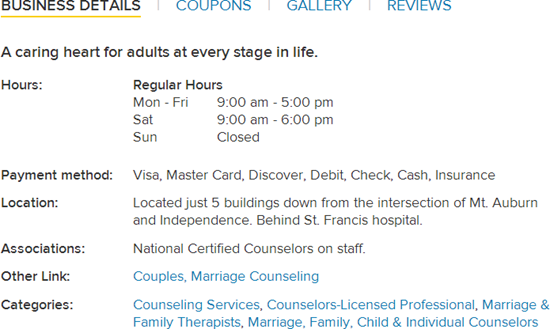A recent conversation with my LocalSpark amigos Darren and Nyagoslav got me to thinking:
Yes, there are dozens of things to remember do when working on your citations. I offered 43 bits of advice in my giant post on citations from a year ago.
But you don’t want all the details – major and minor – to get in the way of one crucial step. It’s perhaps the only practice that makes building or fixing your citations less daunting, and more likely to get completed.
It is:
Do at least one follow-up round of work on your citations.
Do it 30-90 days after the first occasion you work on them.
Better yet: do a third round of work a month or two after the second.
That’s it. If you’re no stranger to citations, you probably know what follow-up work would involve. But if you’d like a little more explanation, just read on.
Why do follow-up work on citations?
- Because some of your listings or edits probably didn’t stick after the first attempt.
- Because the remaining listings are probably on the tougher sites, which usually also means they’re the listings that Google really trusts.
- Because you probably can (and always should) fill out more info on your current listings – like any fields labeled “Services,” “Description,” “Keywords,” and especially your categories.

- Because you may stumble across more sites where you should list your business.
What to do, exactly?
You’re doing 5 main things:
1. You’re checking the sites you’ve already submitted to, to make sure they published your info correctly. To the extent they haven’t, you’re resubmitting your edits, or trying again to claim your listing, or whatever the situation seems to dictate.
2. You’re checking on any listings that you tried to remove before, to make sure they’ve actually been removed. If they haven’t been removed, make your request again. You may also need to see where those sites are getting their (mis)information in the first place – if there’s an “upstream” problem.
3. You’re bulking up any citations that only have your basic info. Again, you’ll want to fill out as many fields as possible – especially the ones where you have the chance to describe your services in more detail. Until very recently, Google would scrape those fields and put the relevant services MapMaker custom categories. It’s likely they still use that info in some way.
4. You’re taking another pass at finding more citation sources.
Fine, but how do you fix up the citations?
Read this superb post by Casey Meraz.
Which sites most need double-checking?
Yelp, YellowPages, ExpressUpdate, and Acxiom – for starters. In my experience, those are the most stubborn sites.
Why doesn’t everyone do follow-up work?
Because it’s extra work.

Even if people know that there’s still work to be done, it’s never a priority. If the rankings are bad and it’s because of messy citations, it’ll usually take months for the fixes to count for anything. And disheveled citations sure as heck aren’t a priority when rankings and spirits are high.
Also, most citation “builders” won’t bother, because it’s easier to bill you for the first several-dozen easy sites than for the 5-10 toughies. (Sure, the tough sites usually require owner-verification, but someone’s at least got to tell that to the business owner.)
It’s part of a bigger strategy
Local SEO usually takes time – months – to bear fruit. You need to start working on it before you’re starving for visibility and phone calls. As I’ve written, the slower you can take it, the better.
If you try to get all your citations perfect in a sitting or even within a week, you’ll probably end up frustrated. But if you revisit them every now and then as part of your long-term push, they’ll get as close to “done” as you can get.
The nice thing is that the more rounds of work you put into your citations, usually the less there is to do each time.
—
What’s your #1 tip on citations?
#1 frustration?
Any questions?
Leave a comment!
